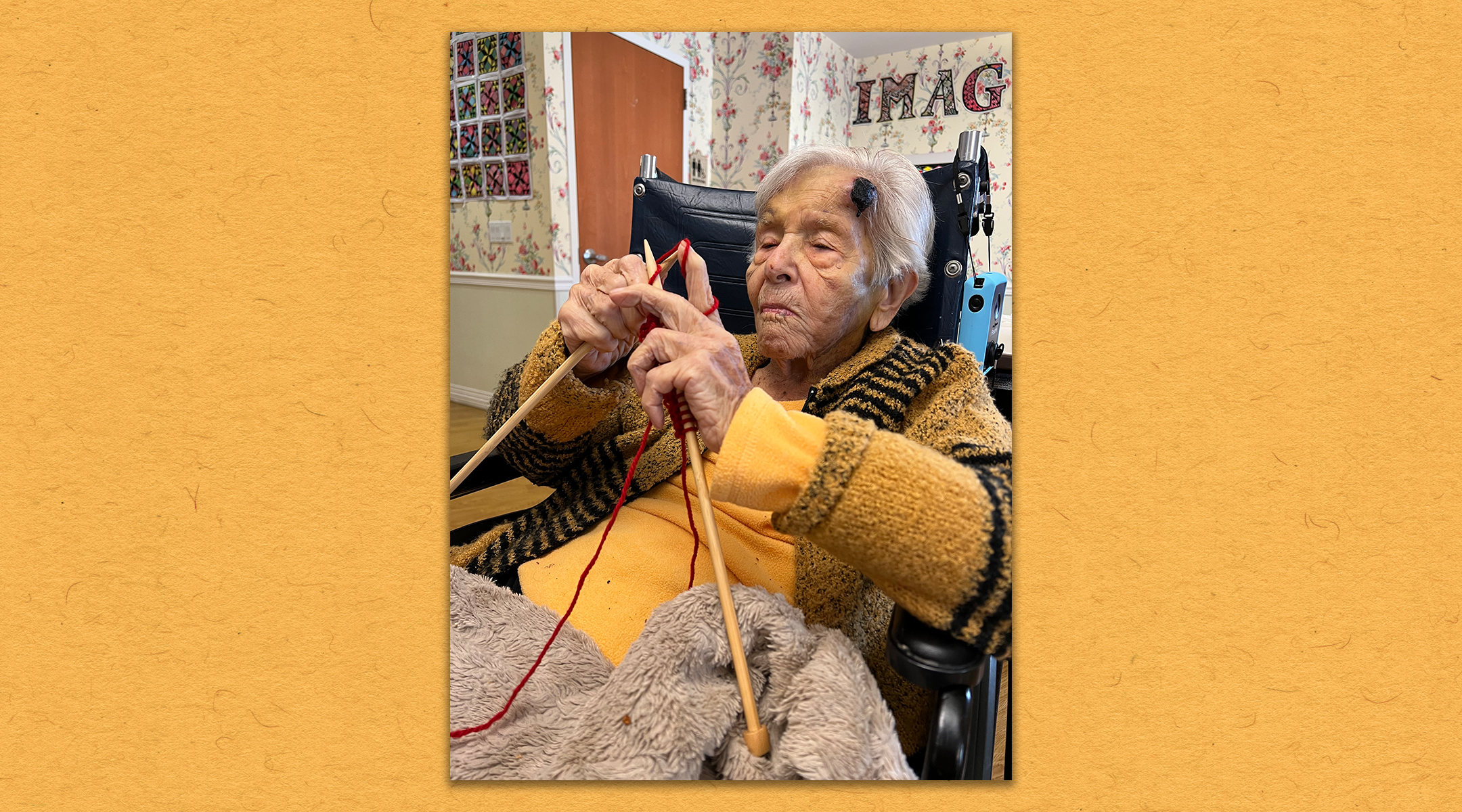New Yorker Rose Girone, who celebrated her 113th birthday on Jan. 13 and was believed to be the oldest living Holocaust survivor, died on Monday morning.
The cause, according to her daughter, Reha Bennicasa, was old age.
Girone — who ran a knitting shop in Forest Hills, Queens and credits the craft as helping to save her family during the Holocaust — was, by all accounts, a remarkable person, and was well-loved in New York’s knitting community. Girone was also outspoken about her experiences during the war; she provided testimonies to The USC Shoah Foundation, the Holocaust Memorial and Tolerance Center of Nassau County and others.
“Everything that’s out there is really who my mother was,” Bennicasa said, referring to the press coverage her mother received in recent years. “She was a strong lady, resilient. She made the best of terrible situations. She was very level-headed, very commonsensical. There was nothing I couldn’t bring to her to help me solve — ever — from childhood on. She was just a terrific lady… and I don’t know, when God made her, they broke mold.”
Born in Janov, Poland in 1912, Girone’s family settled in Hamburg, Germany, where they ran a theatrical costume shop. In 1938, Girone (née Raubvogel) married Julius Mannheim in an arranged marriage; later that year, the couple moved to Breslau, Germany (now Wroclaw, Poland), just as Kristallnacht launched waves of violence against Germany’s Jews. Mannheim was arrested and sent to the Buchenwald concentration camp and Girone, eight months pregnant, fled the city to stay out of harm’s way.
In 1939, Girone jumped at a chance to leave Nazi Germany: A cousin sent her a paper he said was a visa, written in Chinese. Shanghai was one of the last open ports in the world; Girone presented the visa to the Nazi authorities and was able to get Mannheim released from Buchenwald.
“They let my father out with the proviso that we pay them and get out of the country within six weeks, and so we did,” Bennicasa, now 86, told New York Jewish Week writer Tanya Singer in 2022.
Conditions in the Chinese city were difficult for the Jewish refugees, but Girone — who had learned to knit from an aunt as a child and took to it immediately — was able to find wool and knit clothes for her baby girl. Soon enough, an entrepreneurial Viennese Jewish man saw her creations and helped her sell her work and taught her about business.
The money Girone earned from selling her wares to an upscale Shanghai store provided much-needed income for her family. In 1947, when the family was granted a visa for the United States, knitting again played a crucial role in the family’s well-being: Each person was only permitted to leave China with $10, but Girone hid $80 cash inside buttons on her hand-knit sweaters.
They family traveled by ship to San Francisco and ultimately ended up in New York, where they were reunited with Girone’s mother, brother and grandmother, who had all survived the war.
Girone and Mannheim divorced and, in 1968, she met and married Jack Girone. They moved to Whitestone, Queens, where she thrived as a knitting teacher. Soon, she and a partner opened a knitting shop in Rego Park, Queens; they later expanded to a second location in Forest Hills. The partners later split and Girone became the sole owner of Rose’s Knitting Studio on Austin Street.
“Mother was pretty proud of all her designs,” Bennicasa told the New York Jewish Week in 2022. “People would bring ads from Vogue and the like and say they wanted something just like this particular picture. Some with intricate patterns, Mother would sit, figure it out, lots of times with graph paper. She loved it.”
In 1980, at 68, Girone sold her business — but she never stopped knitting.
According to the Long Island Herald, following the death of her husband, Girone lived alone at her apartment in Beechhurst, Queens until she was 103. After breaking her hip three years ago, Girone relocated to Belair Nursing & Rehabilitation Center in North Bellmore, which is close to Bennicasa and her daughter, Gina, who survive her.
As Girone told the Herald on her 113th birthday, “the secret to a long, healthy life is simple: Live every day with a purpose, have amazing children, and eat lots of dark chocolate.”
“She just was a terrific lady,” Bennicasa told the New York Jewish Week on Monday. “There was nothing that was too hard for her to think about doing. She was just great.”
She added, “We have an awful lot of people who thought that she was everybody’s Oma,” said Bennicasa, using the German word for grandma.
The New York Jewish Week brings you the stories behind the headlines, keeping you connected to Jewish life in New York. Help sustain the reporting you trust by donating today.





